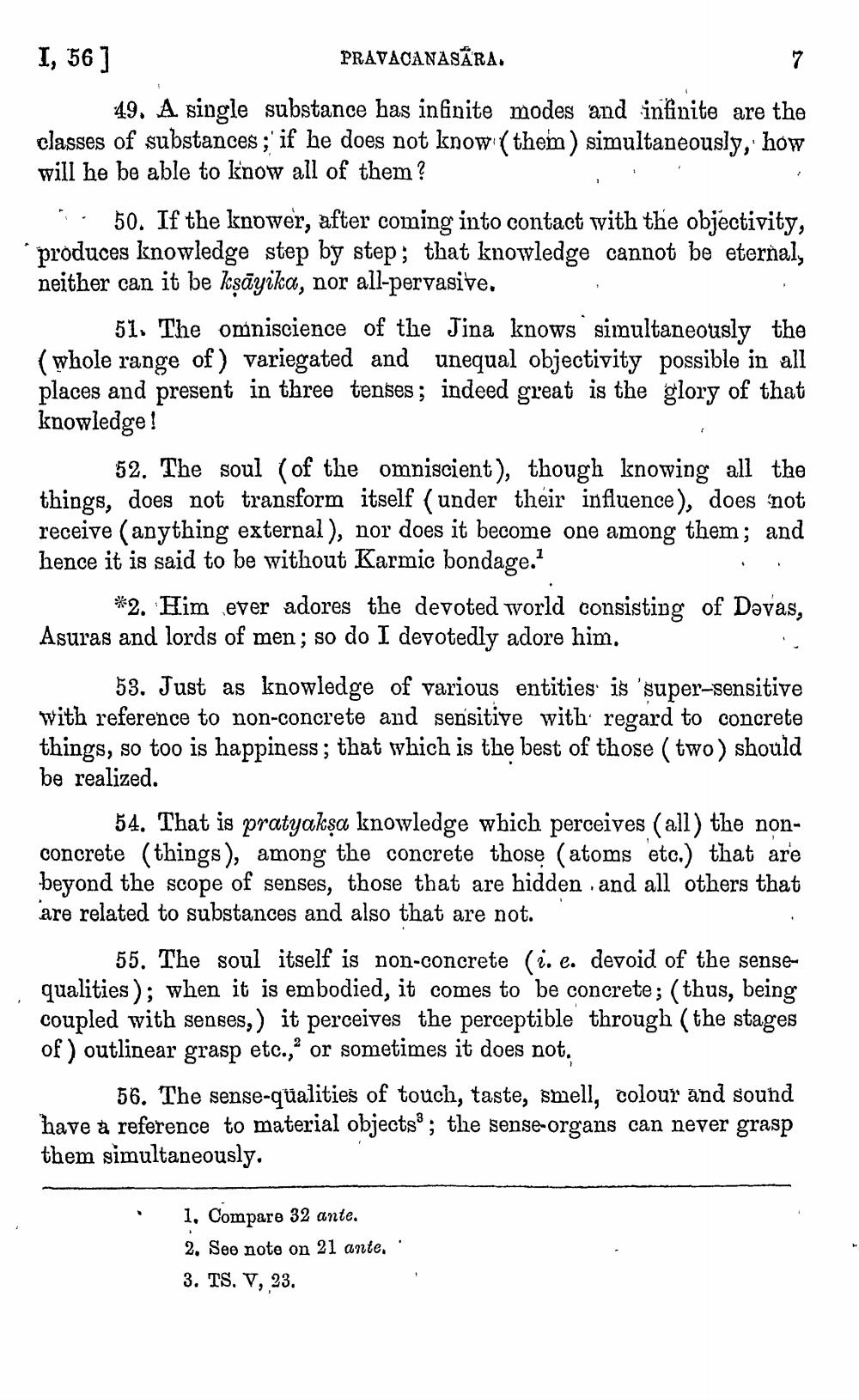________________
I, 56 ]
PRAVACANASÄRA. 49. A single substance has infinite modes and infinite are the classes of substances; if he does not know (them) simultaneously, how will he be able to know all of them?
7. 50. If the knower, after coming into contact with the objectivity, * produces knowledge step by step; that knowledge cannot be eternal, neither can it be kṣāyika, nor all-pervasive.
51. The omniscience of the Jina knows simultaneously the (whole range of) variegated and unequal objectivity possible in all places and present in three tenses; indeed great is the glory of that knowledge!
52. The soul (of the omniscient), though knowing all the things, does not transform itself (under their influence), does not receive anything external), nor does it become one among them; and hence it is said to be without Karmic bondage.?
*2. Him ever adores the devoted world consisting of Davas, Asuras and lords of men; so do I devotedly adore him.
53. Just as knowledge of various entities is 'super-sensitive with reference to non-concrete and sensitive with regard to concrete things, so too is happiness; that which is the best of those (two ) should be realized.
54. That is pratyaksa knowledge which perceives (all) the nonconcrete (things), among the concrete those (atoms etc.) that are beyond the scope of senses, those that are hidden . and all others that are related to substances and also that are not.
55. The soul itself is non-concrete (i. e. devoid of the sense qualities ); when it is embodied, it comes to be concrete; (thus, being coupled with senses,) it perceives the perceptible through (the stages of) outlinear grasp etc., or sometimes it does not.
56. The sense-qualities of touch, taste, smell, colour and sound have a reference to material objects®; the sense-organs can never grasp them simultaneously.
1. Compare 32 ante. 2. See note on 21 ante... 3. TS. V, 23.




